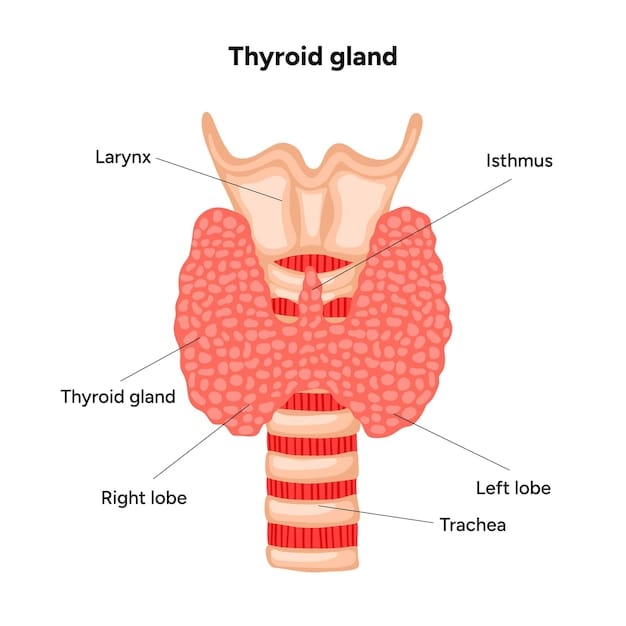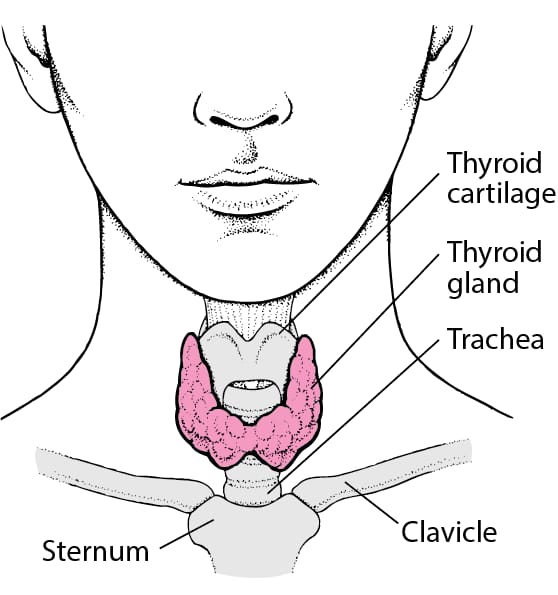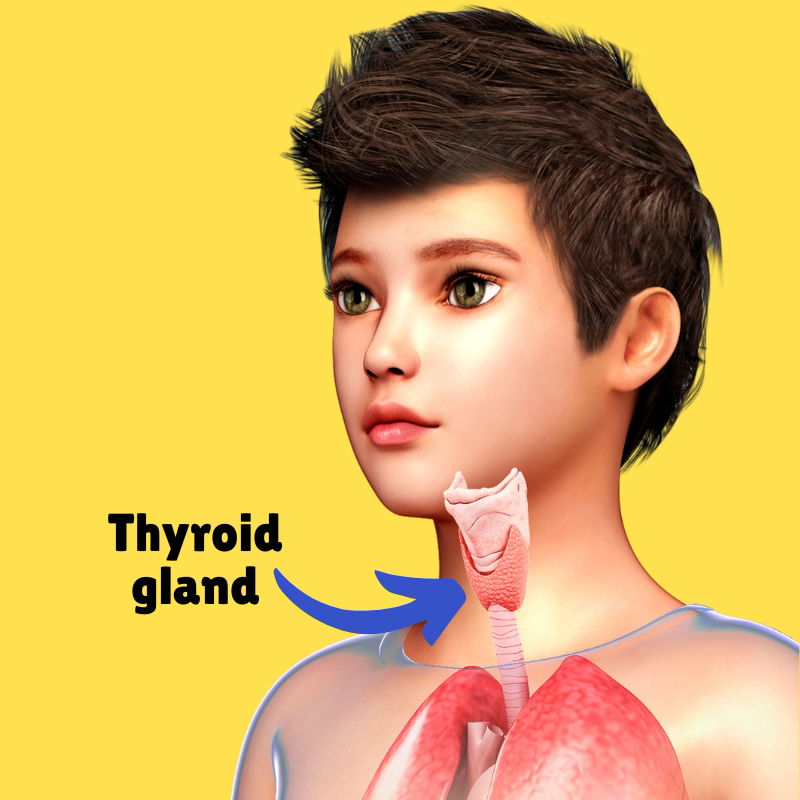The Thyroid Whisper: Why This Tiny Gland Affects Your Whole Life - A Physician’s Perspective

Some patients enter my clinic with a quiet fatigue in their eyes.
They are not in pain. They are not visibly ill. But their energy feels drained, their voice carries a weight, and their body seems to be moving against an invisible resistance.
Their complaints are scattered:
“Doctor, I’m gaining weight without eating more.”
“I feel cold when others are fine.”
“I sleep enough, but I wake up tired.”
“My hair is thinning.”
“My mood is not the same. I’m not myself.”
In many such cases, after careful listening and a few targeted tests, the truth emerges:
The thyroid — that small butterfly-shaped gland at the base of the neck — is whispering for help.

The Thyroid: Small But Mighty
The thyroid gland weighs less than 30 grams, yet it influences almost every cell in the body.
Its two primary hormones — T3 (triiodothyronine) and T4 (thyroxine) — control:
• Metabolism and energy production
• Heart rate and blood pressure
• Body temperature
• Digestion and bowel habits
• Mood and mental clarity
• Skin, hair, and nail health
• Menstrual cycles and fertility
I often tell my patients:
“If your body were a city, the thyroid would be its power supply.”
When supply is steady, everything runs smoothly.
When it falters, the whole city slows down — or overheats.
When the Whisper Turns into Symptoms
Hypothyroidism (low thyroid activity) often develops slowly. Patients adjust to the gradual change, blaming age, stress, or lifestyle — until the signs become obvious:
• Fatigue and sluggishness
• Weight gain despite normal diet
• Sensitivity to cold
• Constipation
• Dry skin, hair loss
• Puffy face, swelling in hands/feet
• Depressed mood, poor concentration
• Hoarse voice
On the other side, Hyperthyroidism (overactive thyroid) speeds up the body unnaturally:
• Unexplained weight loss
• Sweating, heat intolerance
• Tremors, palpitations
• Anxiety, irritability
• Increased appetite
• Frequent bowel movements
• Menstrual irregularities
A Patient Who Reminded Me to Listen
A school teacher in her early 50s came to me, worried she was “getting old too fast.”
Her problem list included joint aches, weight gain, forgetfulness, and “always feeling cold.”
Several doctors had told her she just needed exercise and vitamin supplements.
I ordered a thyroid function test.
Her TSH was markedly elevated — classic hypothyroidism.
Within weeks of starting treatment, she returned not just looking better, but sounding lighter, more alive. Her words stayed with me:
“Doctor, I feel like someone has switched me back on.”
Why Thyroid Issues Are Often Missed
The thyroid’s influence is so broad that its symptoms mimic many other conditions. Fatigue could be anemia, mood change could be depression, weight gain could be diet-related — unless the physician considers the thyroid as a possible root cause.
In my practice, I have learned that:
• Listening to the patient’s story often reveals more than lab numbers.
• Mild thyroid changes can cause significant symptoms before they cross the “abnormal” lab range.
• Women over 40, pregnant women, and those with autoimmune disorders are at higher risk.
• Family history plays a role — thyroid problems often run in families.

Supporting Thyroid Health Naturally
While medication is essential for confirmed thyroid disease, I often guide my patients on lifestyle habits that help maintain optimal thyroid function:
• Adequate Iodine Intake — from iodized salt or natural sources (fish, dairy).
• Selenium and Zinc — crucial for hormone production (nuts, seeds, seafood).
• Regular Physical Activity — improves hormone sensitivity and metabolism.
• Stress Management — chronic cortisol elevation suppresses thyroid function.
• Avoiding Extreme Diets — severe calorie restriction slows thyroid output.
• Limiting Goitrogen Excess — cabbage, soy, and certain raw cruciferous vegetables in moderation if you already have hypothyroidism.
• Checking Vitamin D — deficiency is linked with autoimmune thyroid conditions.
The thyroid does not scream for attention — it whispers.
And if we, as doctors and as individuals, learn to hear that whisper early, we can prevent years of fatigue, frustration, and silent decline.
So if you find yourself slowing down without a clear reason — or speeding up beyond comfort — don’t just treat the symptoms.
Pause. Listen. Check your thyroid.
Because sometimes, the smallest gland is holding the biggest part of your well-being.
Physician’s Advice Corner
Do you have questions about the topic ? Kindly share them in the comments below or email us at info@withinthebody.com or message us on WhatsApp at 0092 320 8708835.
If you like the article or our website, kindly share the link with your contacts.
Your health is your responsibility — but you don’t have to manage it alone. The right knowledge, at the right time, can save lives.
By Dr. Mohammed Tanweer Khan
A Proactive/Holistic Physician
Founder of WithinTheBody.com
